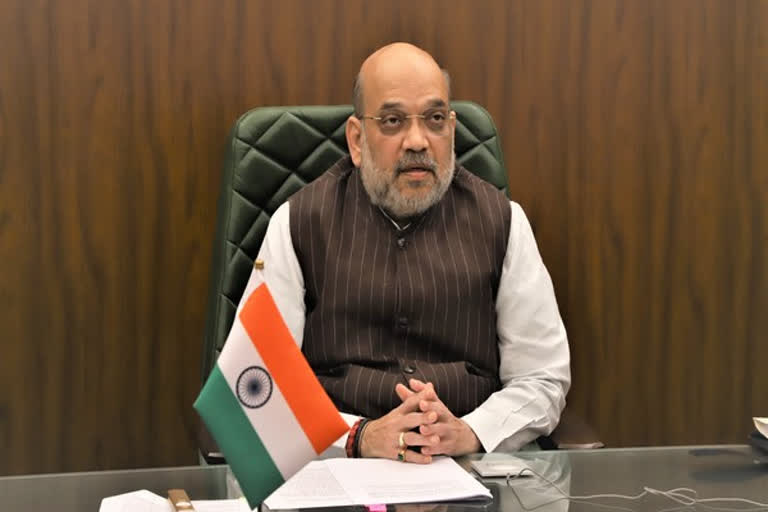Ahmedabad: Union Home Minister Amit Shah on Saturday said Prime Minister Narendra Modi has incorporated Mahatma Gandhi's principles in the new National Education Policy (NEP) as well as in several government projects and schemes.
Shah was speaking at Kochrab Ashram in the Paldi area of Ahmedabad, where he was present to flag off a bicycle rally till Dandi in south Gujarat to celebrate the 92nd anniversary of Mahatma Gandhi's Salt March. Twelve cyclists would travel on the same Dandi March route to spread the message of Mahatma Gandhi. The minister said had India walked on the path shown by Gandhiji from the beginning, the country would not have been facing most of the issues that it is grappling with at present.
"The problem is that we diverted from the path shown by Gandhiji. PM Narendra Modi has incorporated Gandhiji's ideals in the new education policy, such as the importance of mother tongue and national languages as well as employment-oriented education. All these Gandhian principles have been weaved into the policy by the PM," Shah said in his address at the ashram. Kochrab Ashram was the first ashram in India established by Mahatma Gandhi. It was set up in 1915 as part of the Independence Movement. Gandhi then moved to the Sabarmati Ashram in the city.
Also Read: Amit Shah flags off 'Dandi Cycle Yatra' on 92nd anniversary of historic march
"During the salt march, Gandhiji understood the problems of common people during his night stays in villages. After understanding the issues, he came up with solutions and conveyed those solutions to the people through his speeches. Modiji talked about the same after becoming the PM," he added. "If you study the government schemes, such as Swachh Bharat Abhiyan, those related to the provision of toilets, water, and electricity connection in every home, projects for rural uplift, and schemes to create self-reliant villages, you will see a reflection of Gandhian thoughts and principles in them," Shah said.
Stating that he was visiting the ashram after a gap of nearly 10 years, Shah urged the participants of the cycle rally to try to interact with the people during their night halts to understand their problems, and then spread awareness about the Gandhian principles. On March 12, 1930, Mahatma Gandhi led a group of 80 people on a 24-day march against the British monopoly on the production of salt. This non-violent protest came to be known as the Dandi March or Salt March.
PTI



